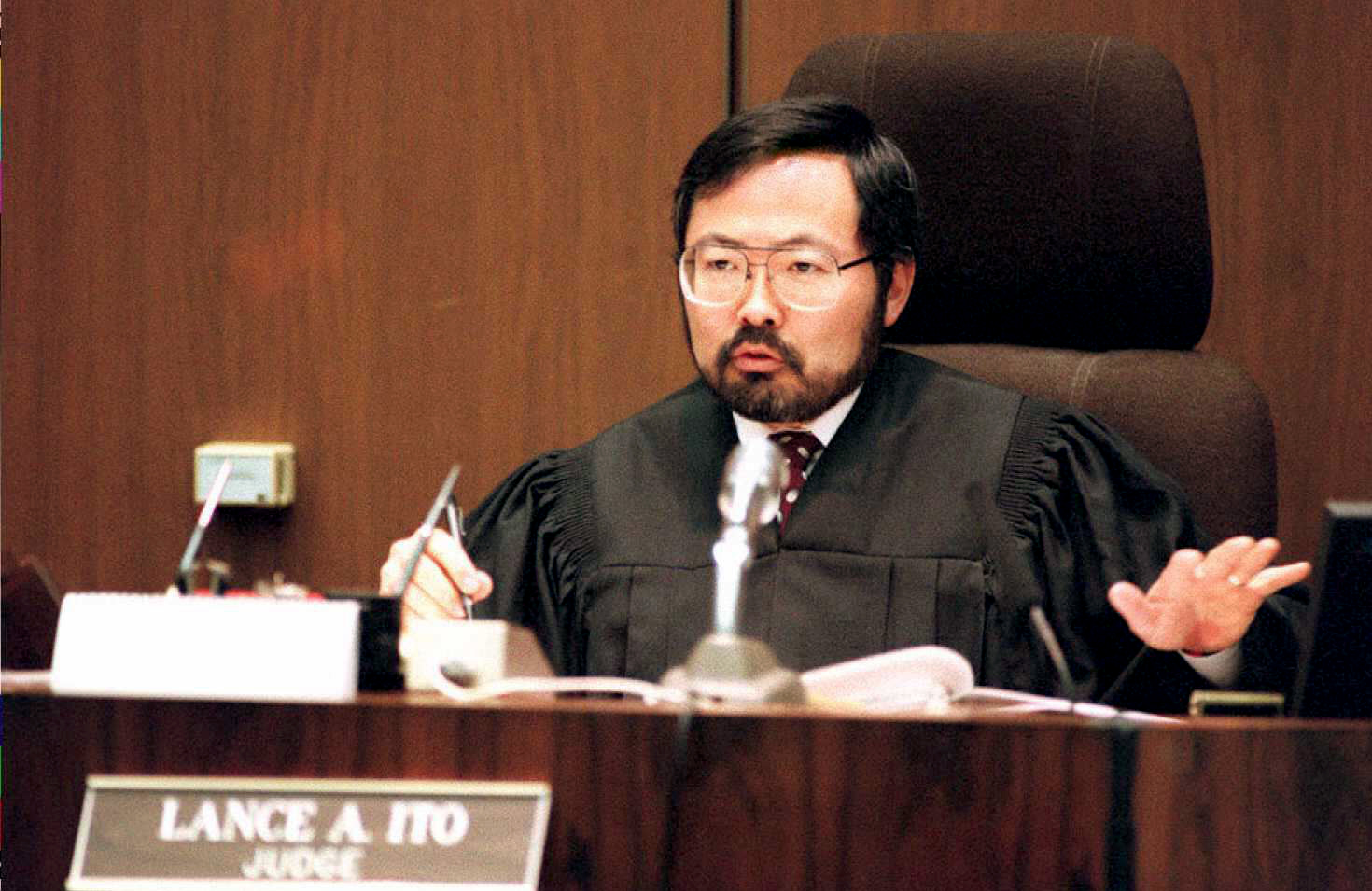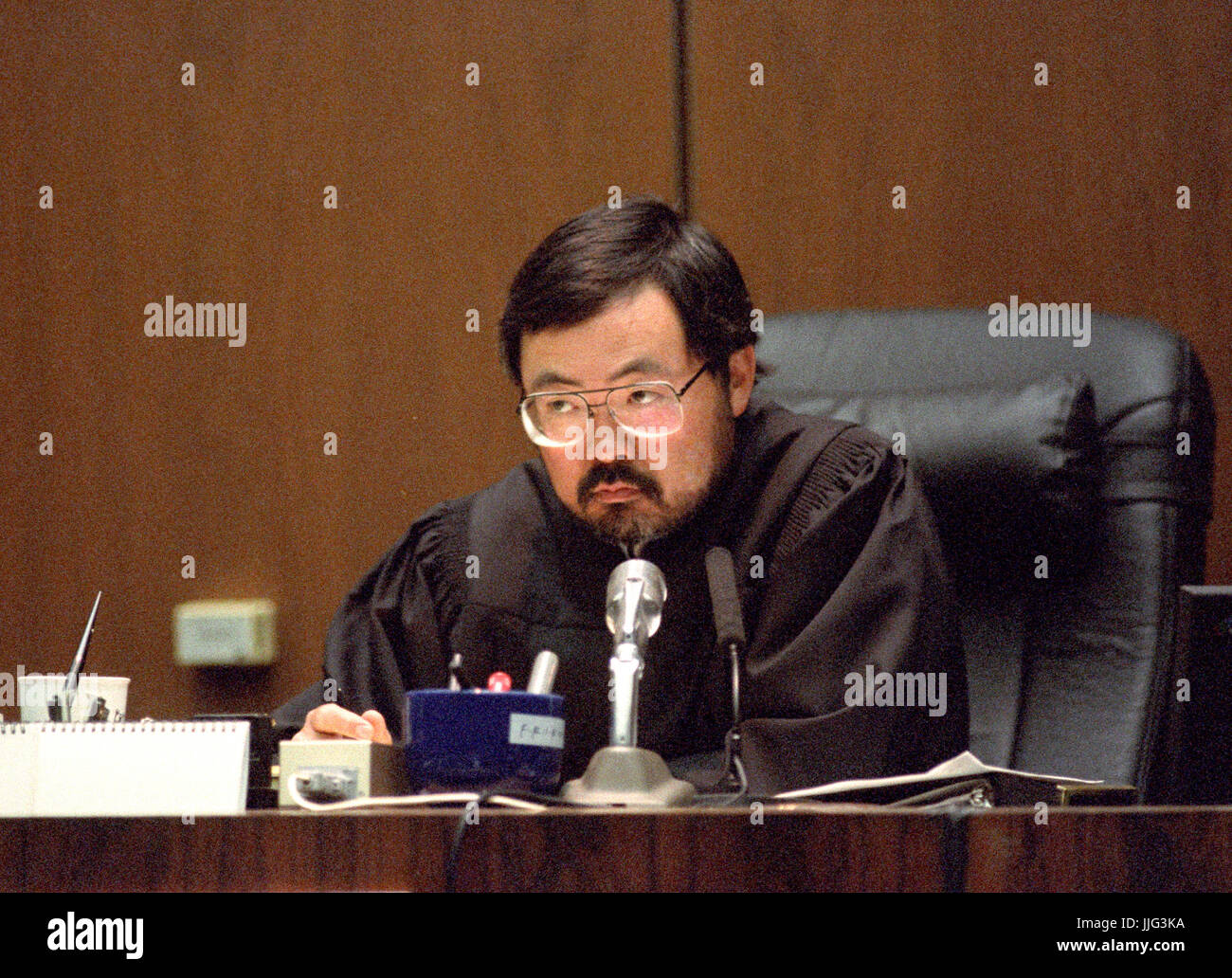The trial of OJ Simpson, one of the most sensational criminal cases in American history, placed Judge Lance Ito at the center of public attention. This high-profile case not only tested the American judicial system but also highlighted the crucial role of the presiding judge in maintaining fairness and order. As the trial unfolded, Judge Ito's decisions became a focal point for media and legal analysts alike.
When the OJ Simpson trial began in 1994, it quickly captured the nation’s attention due to the celebrity status of the defendant. The case revolved around the brutal murders of Nicole Brown Simpson and Ronald Goldman, and the evidence presented created a whirlwind of public speculation. With millions of viewers glued to their televisions, Judge Lance Ito faced immense pressure to ensure that the trial remained fair and impartial.
As the presiding judge, Lance Ito played a pivotal role in shaping the trial's outcome. His decisions, from jury selection to evidence admissibility, were scrutinized under the microscope of public opinion. This article delves into the details of Judge Ito's involvement in the OJ Simpson case, examining his background, decisions, and the lasting impact of his role in this landmark trial.
Read also:Vegamoviesms Anime Your Ultimate Destination For Highquality Anime Streaming
Table of Contents
- Biography of Judge Lance Ito
- Preliminaries of the OJ Simpson Case
- Jury Selection: A Crucial Decision
- Evidence Admissibility: Controversial Rulings
- The Media's Role in the Trial
- Key Decisions by Judge Ito
- Public Opinion and Criticism
- Judge Ito's Legal Legacy
- Ethical Considerations in High-Profile Cases
- Conclusion
Biography of Judge Lance Ito
Early Life and Education
Lance Arthur Ito was born on March 17, 1950, in Los Angeles, California. His early life was marked by a strong interest in law and justice, which eventually led him to pursue a career in the legal field. After completing his undergraduate studies, Ito attended law school, where he excelled and developed a keen understanding of the judicial system.
Professional Career
Before being appointed as a judge, Ito worked as a prosecutor in the Los Angeles County District Attorney's Office. His dedication and integrity earned him a reputation as a fair and impartial legal professional. In 1989, he was appointed to the Los Angeles Superior Court, where he presided over numerous cases before being assigned to the OJ Simpson trial.
| Full Name | Lance Arthur Ito |
|---|---|
| Date of Birth | March 17, 1950 |
| Place of Birth | Los Angeles, California |
| Education | Law Degree from Loyola Law School |
| Profession | Judge, Los Angeles Superior Court |
Preliminaries of the OJ Simpson Case
The OJ Simpson trial began in November 1994, following the shocking discovery of the murders of Nicole Brown Simpson and Ronald Goldman. The prosecution accused Simpson of committing the crimes, citing a series of circumstantial evidence and a bloody glove found at the scene. As the trial progressed, the media frenzy surrounding the case grew, turning it into a national spectacle.
Jury Selection: A Crucial Decision
Jury selection in the OJ Simpson trial was one of the most scrutinized aspects of the case. Judge Ito faced the challenging task of ensuring that the jury was impartial and representative of the community. The process involved extensive questioning and vetting of potential jurors to minimize bias.
- Over 400 potential jurors were interviewed.
- The final jury consisted of 12 members, including 10 women and 2 men.
- Judge Ito emphasized the importance of diversity in the jury pool.
Evidence Admissibility: Controversial Rulings
One of the most contentious issues during the trial was the admissibility of evidence. Judge Ito had to make several critical decisions regarding whether certain pieces of evidence could be presented to the jury. These rulings often sparked heated debates among legal experts and the public.
Key Evidence Controversies
- The Bloody Glove: The prosecution argued that the glove found at the crime scene was a crucial piece of evidence linking Simpson to the murders.
- Forensic Evidence: The defense questioned the reliability of DNA testing and the chain of custody for forensic samples.
- Police Conduct: Allegations of misconduct by law enforcement officers raised doubts about the integrity of the investigation.
The Media's Role in the Trial
The OJ Simpson trial was one of the first major cases to be broadcast live on national television. This unprecedented media coverage placed immense pressure on Judge Ito to maintain decorum and fairness in the courtroom. The media's portrayal of the trial often influenced public perception, leading to widespread debate about the role of media in high-profile cases.
Read also:Modrics Family Wounds Exploring The Trials And Triumphs
Key Decisions by Judge Ito
Judge Lance Ito made several pivotal decisions throughout the trial, each with significant implications for the outcome. His rulings on evidence, jury instructions, and courtroom conduct were closely monitored by legal analysts and the public.
Notable Decisions
- Allowed the prosecution to present evidence linking Simpson to the murders.
- Imposed strict guidelines on media coverage to prevent undue influence on the jury.
- Handled disruptions and outbursts in the courtroom with professionalism and authority.
Public Opinion and Criticism
Public opinion of Judge Ito's performance in the OJ Simpson trial was divided. While some praised his efforts to maintain fairness and impartiality, others criticized certain rulings as overly lenient or biased. The trial's outcome, which resulted in Simpson's acquittal, further fueled debates about the effectiveness of the American judicial system.
Judge Ito's Legal Legacy
Judge Lance Ito's role in the OJ Simpson trial left an indelible mark on the American legal landscape. His handling of the case highlighted the challenges faced by judges in high-profile cases and underscored the importance of maintaining judicial integrity. Despite the criticism he faced, Ito's commitment to upholding the law earned him respect within the legal community.
Ethical Considerations in High-Profile Cases
High-profile cases like the OJ Simpson trial raise important ethical questions about the role of judges and the influence of media on the judicial process. Judges must balance the need for transparency with the responsibility to ensure a fair trial. Ethical considerations in such cases include:
- Maintaining impartiality despite public pressure.
- Protecting the rights of all parties involved.
- Ensuring that media coverage does not compromise the integrity of the trial.
Conclusion
The OJ Simpson trial remains one of the most talked-about legal cases in history, with Judge Lance Ito at its helm. His decisions and conduct during the trial played a critical role in shaping its outcome and influencing public perception of the American judicial system. By adhering to the principles of fairness and impartiality, Judge Ito demonstrated the importance of ethical leadership in the legal profession.
We invite you to share your thoughts on this article and explore other topics related to law and justice. For further reading, consider delving into the broader implications of high-profile cases on the judicial system. Your feedback and engagement are valuable in fostering a deeper understanding of these complex issues.
Sources:
- Levy, Andrew. Deadly Innocence: The O.J. Simpson Case. New York: HarperCollins, 1996.
- Smith, Dean. "The Impact of Media on High-Profile Trials." Journal of Legal Studies, vol. 45, no. 2, 2010, pp. 123-145.
- U.S. Courts. "Judicial Ethics and the Role of Judges in High-Profile Cases." Federal Judicial Center, 2018.


